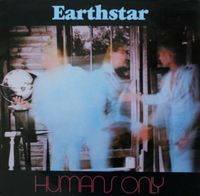-
0:00/6:20
-
Earthstar: Billows 4:520:00/4:52
-
0:00/6:54
EARTHSTAR
News
Collected Works • MiG Music • 2023
Available from numerous retailers and streaming platforms

Sleeper the Nightlifer • MiG Music • 1979/2023
Discography

Salterbarty Tales • Moontower Records • 1979/2023

French Skyline • Sky Records • 1981/2023

Atomkraft? Nein, Danke! • Sky Records • 1982/2023

Humans Only • Sky Records • 1982

Picture Music Vol. III • Sky Records compilation • 1980
Sky Records LP sampler featuring Earthstar, Brian Eno, Hans-Joachim Roedelius, Dieter Moebius, Conny Plank, a.o.; track: "French Skyline Suite; Movement 1: Morning Song"

Schwingungen • Sky Records compilation • 1986
Sky Records CD sampler featuring Earthstar, Brian Eno, Cluster, Harald Grosskopf, Adelbert Von Deyen, a.o.); track: "White Cloud"

Schwingungen Vol. II • Sky Records compilation • 1986
Sky Records CD sampler featuring Earthstar, Brian Eno, Cluster, Serge Blenner, Nik Tyndall, a.o.); track: "Latin Sirens Face The Wall"


Craig Wuest, Rixforde, Germany 1979

Dennis Rea, Sleeper the Nightlifer session at IC-Studio, Winsen an der Aller, Germany 1979 (Klaus Schulze's face can be dimly descried in reflection)

L-R: Craig Wuest, Melanie Coiro, Tim Finnegan, Daniel Zongrone, Donna Malara

L-R: Daniel Zongrone, Dennis Rea, Craig Wuest, Rixforde, Germany 1979

Dan Happ

Daniel Zongrone and Craig Wuest

Earthstar headquarters, Rixforde, West Germany 1979-80

Earthstar UNICEF benefit concert, Utica, NY 1981

Earthstar UNICEF benefit flyer; artwork by Craig Wuest


Earthstar + Zuir concert poster by Daryl Trivieri

Daniel Zongrone (obscured) and Dennis Rea at Earthstar show in Utica, NY circa 1977


Zuir, Utica NY circa 1978: Daniel Zongrone (drums), Dennis Rea (guitar); not pictured: Norm Peach (bass)
About

Earthstar founder Craig Wuest in 1977
|
CORE MEMBERS
|
CONTRIBUTORS | |
|
|
|

